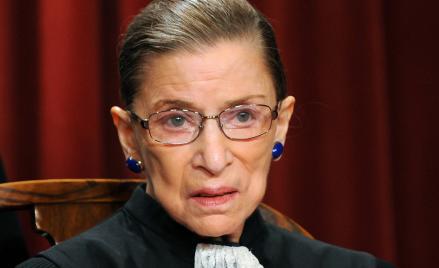“Hubris is a fit word for today’s demolition” writes Justice Ruth Ginsburg about the Supreme Court’s 5–4 decision invalidating the key provision of the Voting Rights Act. And it is a particularly toxic form of hubris: one that diminishes and disparages the elected representatives of the American people.
The court essentially relies upon two points to invalidate this fundamental provision, Section 5. The first pillar of the decision is the “equal sovereignty of the states,” a constitutional principle that—as Judge Posner puts it with his customary precision—“does not exist.” As he says, “The opinion rests on air.”
The other basis for the court’s decision is the fact that the formula for deciding which states and municipalities are covered by Section 5 (and thus must go to the Department of Justice or court for pre-approval of a change to election law) is out-of-date. In the view of the court’s majority, the formula is not connected with sufficient logic to current acts of racial discrimination in voting. But there has never been a constitutional requirement that Congress act on up-to-date information or maintain a close logical nexus between problem and solution.
In its decision in this case, called Shelby County, the five-member majority of the court treats the Congress of the United States like a slow student in a graduate seminar in political science. But Congress is not a student in need of instruction from tutors in black robe. It is constitutionally empowered to paint with a broad brush.
Congress had a very good reason for deciding not to revise the existing Section 5 formula: doing so would likely have caused a legislative train wreck.
Congressional representatives from states covered by the pre-existing formula (mostly in the South) could vote to reauthorize the Voting Rights Act because doing so did not involve accusing their states of currently being more racist than others. It was simply a matter of history. Citizens in these states would not (and could not) dispute the historical fact of racial discrimination. Recognition of that history does not constitute present moral condemnation. And thus it was far better as a matter of pragmatic legislative reality to use the previous formula than attempt to figure out a new, more up-to-date set of rules.
And Congress knew—absolutely knew—that the old coverage formula continued to work. It may not have worked as a matter of logic: Out-of-date figures about low minority registration rates may not predict which jurisdictions will now rig voting districts to dilute minority influence. But Congress knew that the old formula was close enough.
Oh, how we miss Justice O’Connor. I’m not even saying that I know for certain how she would have voted in this case. But she was the last remaining member of the court with any experience in elected politics. Unlike many members of the current court, she understands in her marrow what Justice Oliver Wendell Holmes Jr. meant when he wrote:
“The life of the law has not been logic; it has been experience … The law embodies the story of a nation’s development through many centuries, and it cannot be dealt with as if it contained only the axioms and corollaries of a book of mathematics.”
I’m not an expert on voting, and I can’t profess to know what the effect of today’s decision will be on discrimination in our election processes. But its effect on the law of the Constitution is profound. It represents a fundamental distortion of the roles of court and Congress. In the aftermath of the Civil War, the Reconstruction Congress knew that it could not trust the Supreme Court—the institution that gave us the Dred Scott decision—to protect voting rights. That power was given to Congress. Explicitly. In the words of the 15th Amendment:
Congress shall have the power to enforce this article by appropriate legislation.
It is worth noting that the opinion of the court in Shelby County never mentions the text of the 15th Amendment.
